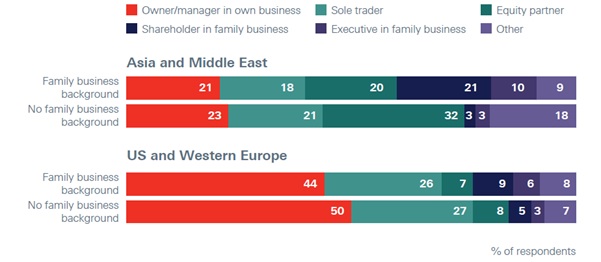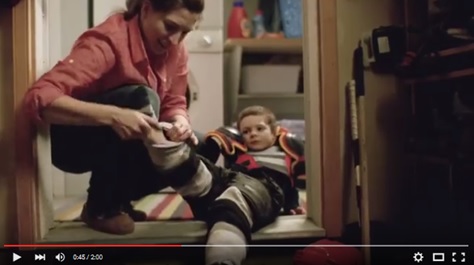Ahead of the 2012 Olympic Games the American consumer goods manufacturer, Procter and Gamble (P&G), launched “Thank you, Mom”, a campaign to acknowledge the vital contribution of mothers to the success of their offspring.
P&G’s television advertisement follows a group of children growing up while in pursuit of Olympic triumph; their mothers are ever present in their journey - picking them up when they fall, taking care of injuries, providing emotional counsel and showing enormous pride in their achievements.
Just as with the chase for a gold medal, starting a business requires taking risk, failure and perseverance (in some instances requiring the same amount of sweat and tears!), as well as a similar family support structure. A new piece of research by HSBC Private Bank has proven that the influence of family is equally impactful in the achievements of entrepreneurs, by showing that half of all successful entrepreneurs have come from a business-owning family.
For teaching us that falling only makes us stronger, Thank you Mom.
Source: Thank you, Mom – P&G Commercial (Sochi 2014 Olympic Winter Games)
The Global Family Business Index shows examples of some of the world’s largest and best-known brands – like Wal-Mart, Volkswagen, Ford and Itaú Unibanco – which are still associated with family units. Research on the interplay between family and business ownership has typically revolved around the potential existence of an ‘entrepreneurial gene’ (the unique set of natural characteristics that determine an individual’s propensity to be self-employed), as well as the tradition of multi-generational family enterprise.
A study conducted by King’s College London revealed that 37-48% of the tendency to be an entrepreneur is linked to our DNA. Genetics have been especially closely linked to the ability to identify new business opportunities, as well as the likelihood of having characteristics which lend themselves well to independent employment, such as extroversion and openness.
Non-believers in the entrepreneurial gene have attributed the high proportion of second-generation entrepreneurs to the wealth of their parents, arguing that financial stability cultivates an environment for risk-taking and creativity that is not possible for those not born to business-owning families.
While HSBC’s research does confirm that business owners with a heritage of entrepreneurialism leverage family assets to start their ventures, they typically do so alongside other funding sources. In fact, half of their wealth is created through their own activities as an entrepreneur.
When comparing the incidence of each type of entrepreneur globally, distinct cultural differences comes into play: in Asia and the Middle East, the tradition of family enterprise is strong and consequently reflected in the high percentage (31%) of second-generation entrepreneurs either operating as a shareholder or executive in a family business. In contrast, in the US and Western Europe, this figure is just 15% and instead, 44% of those with a family business background are owners of their own businesses and a further 26% are sole traders.
How next generation business owners see themselves

Source: HSBC Private Bank, Essence of Enterprise Study
Rather than being a product of nature, it appears that proximity to business-owning parents cultivates the environment for practical learning and personal entrepreneurial development. The evidence demonstrates that second generation entrepreneurs are more tactical about how they convert their business success into personal wealth. They are more likely to have a plan in place to sell their enterprise and to become serial entrepreneurs by replicating their start-up, growth and exit cycle again and again.
The success of these second generation entrepreneurs demonstrates that a structured process of knowledge transfer between family members, as well as formalised training and development of the next generation can ensure that successors of wealth reach their full potential.
So whether you believe that nature or nurture has more of an influence over entrepreneurs, it cannot be denied that family has a huge impact on their eventual success. With my Private Office, V3, now in its fifth year, it is perhaps time that I said… “Grazie, Mamma”.

